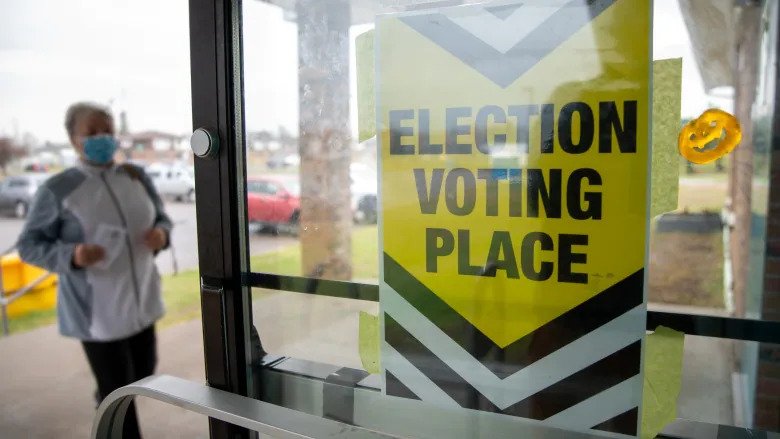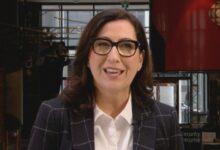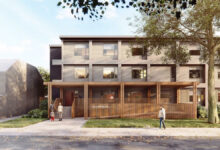Ontario votes today — here’s what you need to know
Ontario voters will head to the polls on Monday to elect city councillors and school board trustees as provincewide municipal elections get underway.
Over 6,300 candidates across the province are running to tackle a range of key issues, from housing affordability, to infrastructure and public transit, to COVID-19 recovery and mental health.
While municipalities like Thunder Bay, Waterloo and Sudbury have opened online voting, other parts of the province will choose their local governments at polling stations Monday.
CBC News tells you what you need to know ahead of the 2022 Ontario municipal elections, and how you can track the results.
Electronic voting spreads in attempt to curb low turnout
Several trends have emerged during this municipal election period.
This year’s races could see a historically low turnout. Just 38.3 per cent of the eligible voting population cast a ballot during the 2018 municipal elections, the lowest number recorded since 1982.
Meanwhile, June’s provincial elections saw the lowest turnout in history, with only 43 per cent of the eligible population voting.
An interesting contrast has emerged at advanced polls, where several regions saw higher voter turnouts. Windsor, Ont., saw 80 per cent more voters during the advanced voting period than it did during the last election, according to city officials.
Electronic voting will be more accessible this year to help with lacklustre turnout. Over 215 municipalities are using online or phone voting this year, up from 175 in 2018, according to the Association of Municipalities of Ontario.
Some experts caution that the system isn’t foolproof — earlier this month, an online ballot error affected 27 voters across two wards in Thunder Bay — and that Canada needs higher standards in place to ensure that electronic voting is properly regulated.
Open mayoral races, anti-trans trustee candidates
The province’s major municipalities are facing open mayoral races as a significant number of incumbents opted not to seek re-election, including in Ottawa, North Bay and Vaughan.
Incumbency provides a significant advantage, especially at the municipal level where candidates aren’t aligned with brand name political parties and are often working on name recognition alone.
The successful candidates could get another boost: Ontario Premier Doug Ford has said he will extend strong mayor powers to several major municipalities next year, after testing the system in Toronto and Ottawa.
Monday’s election will also see voters cast a ballot for their local school board trustee. Some parents are concerned about a pattern of anti-trans rhetoric used by trustee candidates across the province.
A recent CBC News investigation found that dozens of trustees are running on platforms that include rolling back protections for transgender students.
Regions from Kitchener-Waterloo to London to Ottawa have reported a rise in trustees running on self-styled “anti-woke” platforms.
Hot races in Ottawa, North Bay, Hamilton
Ottawa: The nation’s capital will have one of its most exciting — and competitive — races in years, as the city elects a new mayor for the first time in over a decade.
Mayor Jim Watson has hung up his hat. There will be 14 candidates on the ballot, with Catherine McKenney, Bob Chiarelli and Mark Sutcliffe among those vying to replace him.
Ottawa’s city council will also see some upheaval, with nearly a dozen new councillors in the running. The election comes just over a year after Ottawa introduced its newly redrawn ward boundaries.
Windsor: Mayoral incumbent Drew Dilkens was first elected in 2014. Now vying for a third term, Dilkens has pitched voters on economic development, public safety and building a new hospital.
Among his challengers is Chris Holt, a two-term city councillor who has pledged to improve road safety, city services and public transit.
Toronto: Toronto’s city council is getting a significant facelift this election, with nearly 30 per cent of its seats up for grabs as seven incumbents call it quits.
Among the hottest races are University-Rosedale, Toronto-Centre and Spadina-Fort York, the latter where 12 candidates are making a bid to lead.
Etobicoke North has made headlines as this year’s race marks the first time a member of the Ford family won’t run in its municipal elections. Candidate Amber Morley in Etobicoke-Lakeshore is attempting to unseat a longtime incumbent, Mark Grimes.
Willowdale, in Toronto’s North York district, will see a competitive race this year as its longtime incumbent John Fillion retires — having endorsed, at one point, two of the candidates.
North Bay: The northeastern Ontario city will have a new mayor for the first time in 12 years. Incumbent Al McDonald is leaving municipal politics, setting the stage for a newcomer to take the reins.
Leslie McVeety, Peter Chirico and Johanne Brousseau will compete to replace McDonald. McVeety is prioritizing housing and homelessness, and public safety; Chirico is looking to reinvent the city’s downtown and creating culture change at city hall; while Brousseau will tackle community wellbeing and economic development.
The race to city hall will be a crowded one, as 29 candidates are running for city council.
Hamilton: Hamilton’s race to replace outgoing mayor Fred Eisenberger includes Andrea Horwath, former head of the provincial NDP, Keanin Loomis, the former president and CEO of the Hamilton Chamber of Commerce, taxi union leader Ejaz Butt and former Hamilton mayor Bob Bratina.
Six of 15 councillors aren’t running for re-election in Hamilton, leaving one of the province’s largest municipalities open for drastic change.
Some candidates are being targeted in a wave of increased harassment and hateful rhetoric, spending time and money to deal with vandalism and death threats.
Waterloo Region: The majority of seats on Waterloo’s regional council (which represents cities Waterloo, Kitchener and Cambridge) are up for grabs as six of eight incumbents opted not to run for re-election.
Three candidates are running for regional chair: financial planner Brendon Da Costa, social worker and psychotherapist Narine Dat Sookram and former MP Karen Redman.
A shakeup is also promised at the school board level, where four of 11 incumbents have chosen not to run for re-election.
Some candidates say they’re focused on strengthening the public education system and supporting teachers, while others want to change current sex-ed curriculums and remove political discussions from the classroom.









Redes Sociais - Comentários